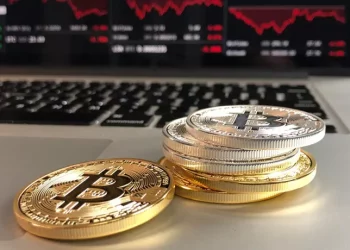On June 2nd, it was reported that the Monetary Authority of Singapore (MAS) released its final policy document on May 30, 2025, once again clarifying important rules in the field of cryptocurrency regulation. The document stipulates that all cryptocurrency service providers registered or operating in Singapore that have not yet obtained a Digital Token Service Provider (DTSP) license must cease providing cryptocurrency services to overseas clients by June 30, 2025.
In the policy released this time, MAS emphasized that there is no transition period for this regulation, aiming to ensure the prompt implementation and effective enforcement of regulatory policies. Once any encryption service provider violates this regulation, they will all face penalties in accordance with the law. This strict measure demonstrates MAS’s determination to regulate the cryptocurrency service sector, striving to create a standardized and secure cryptocurrency market environment.
As early as October 2024, MAS released proposed regulatory updates regarding the licensing of Digital Token Service Providers (DTSPS), particularly targeting those so-called “shell” DTSPS. Since 2020, Singapore has been screening DTSPS through strict anti-money laundering (AML) and anti-terrorist financing (CFT) rules. The strict requirements for licenses this time are further strengthened on the basis of previous supervision. Under the Financial Services and Markets Act (FSMB), MAS hopes to strengthen the supervision of DTSPS that are based in Singapore but do not conduct substantive business there. Its new regulations indicate a high regard for risk management and maintaining the reputation of Singapore’s financial system, and it plans to conduct more rigorous reviews of these DTSPS.
In the past regulatory process of cryptocurrency services, MAS has repeatedly demonstrated a tough stance. Previously, Binance’s CEO Changpeng Zhao (CZ) once claimed that Binance closed the Singapore Exchange because it held an 18% stake in the regulated Singapore stock exchange HG Exchange (HGX). However, according to Bloomberg, the real reason is that Binance fails to meet the license requirements for operating a crypto exchange in Singapore. This incident also reflects from the side the strict standards of MAS in license issuance.
This restriction on unlicensed crypto service providers serving overseas clients will have a significant impact on relevant institutions registered or operating in Singapore. For those crypto service providers that have not yet obtained the DTSP license and rely on overseas clients for business, the June 30 deadline is approaching. They need to quickly adjust their business strategies or expedite the license application process to avoid the risk of violations. The implementation of this policy is expected to further regulate the order of Singapore’s cryptocurrency service market and promote the industry to develop in a more compliant and healthy direction. Subsequently, the market will continue to pay close attention to the response measures of various crypto service providers and more developments of MAS during the regulatory enforcement process.
Related Topics:
- The U.S. spot Bitcoin ETF saw a net outflow of 614.02 million U.S. dollars yesterday
- Slow Mist Cosine: The longer the mnemonic phrases/private keys are used online and shared by more people, the more likely they are to be leaked and difficult to detect
- OKX has launched the Babylon BTC on-chain coin-earning product and initiated additional reward activities















